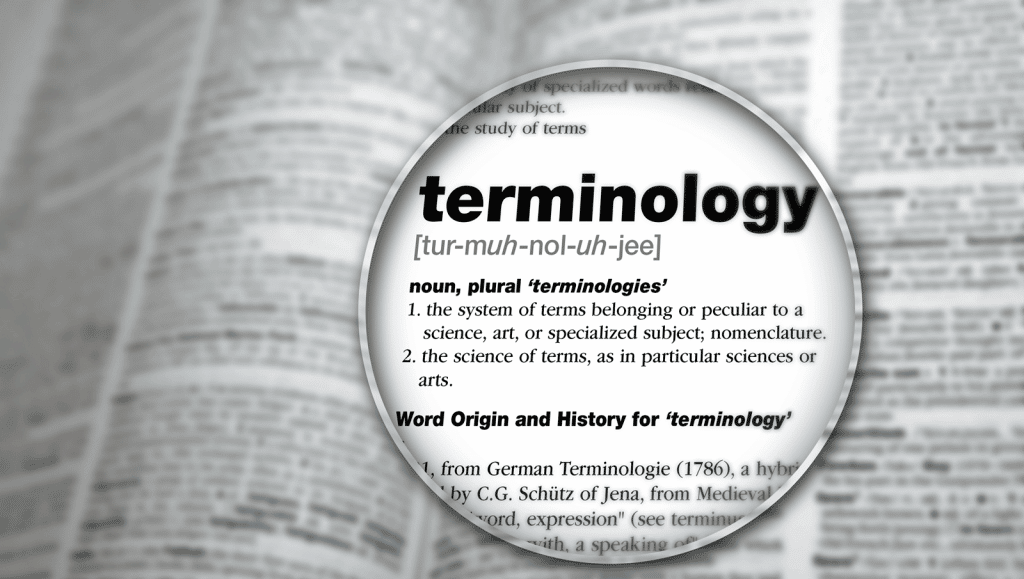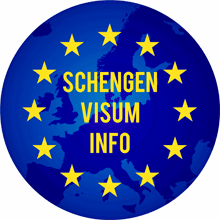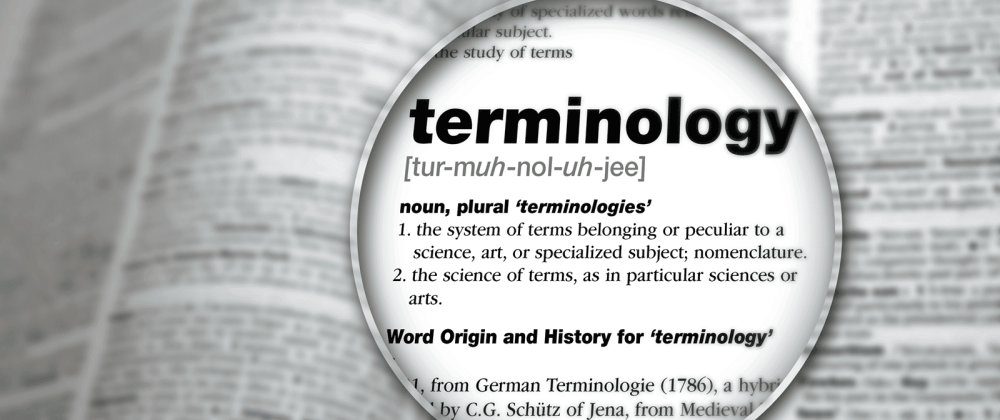Frequently used terms and concepts with a Schengen visa
Below are frequently used terms and concepts with a brief explanation, which you may encounter when it comes to applying for a Schengen visa.
Apostille: The (legal) authentication by a competent authority of statements, signatures, etc. (by placing the necessary stamps, etc.). For example, after the translation of an official document, it must also be apostilled.
Profession: In case of a negative decision on your objection after a visa rejection, you can appeal to the court. More information: Objection and appeal »
beschikking: This is a (written) decision of the government. A foreign national who has submitted an application for a visa will be informed of the decision by means of a decision. The oral notification from the KMar that you will not be admitted to the Netherlands is also a decision against which you can object.
Objection: If your visa application has been rejected, you can lodge an objection. If the objection does not yield any results, you can appeal to a court. More information: Objection and appeal »
biometrics: Passport photos and taking fingerprints. More information: Biomertry »
Consular Service Organization (CSO): Since 8 January 2018, the Ministry of Foreign Affairs has been working with 1 CSO. Before that date, various RSOs (Regional Service Organizations) were used. The former RSOs are centralized in The Hague. The CSO is divided into 3 clusters.
Consular Affairs: Department at the embassy, responsible for issuing travel documents (passports for citizens of the country of origin and visas for citizens of the host country).
Third countries: These are countries that are not members of the European Union. The term 'third countries' is also often used when it comes to agreements between two or more EU Member States and another country.
EES: This is the abbreviation for the EU Entry-Exit System. To increase security in the EU, from 2020 the EU will use a new entry and exit system at the external borders of the Schengen area. More information: EES »
ETIAS: European Travel Information and Authorization System to be introduced by the EU in 2021 for visa-free nationalities. More information: ETIAS »
EU citizen/national: All citizens of countries belonging to the EU.
EU/EEA (EEA): European Union, European Economic Area. Cooperation of European countries.
EU Visa Code: That is EU Regulation 810/2009/EC, which contains the uniform visa rules for all Schengen countries. More information: EU Visa Code »
European Union: The European Union (EU) is an economic and political cooperation of 28 European countries (member states). These countries have given the EU powers to implement common European policies. The Netherlands is part of the EU.
Europol: Europol (European Police Office) is a multinational investigative organization and the partnership of the police forces of the European Union.
External Service Provider (EDV): External service providers are internationally operating commercial companies that are deployed and directed by the Ministry of Foreign Affairs, in the visa process for the intake of visa applications and the issuing of the visas. An example of this is Vfs global.
Guarantor: Someone who acts as a financial guarantor for a foreign national who is subject to a visa requirement.
Guarantee: Completing the form Proof of guarantee and/or accommodation and the legalization of the signature by the municipality. More information: Guarantee »
Information Supported Decision Making: The Ministry of Foreign Affairs uses a method based on data analysis for the visa application, the Information Supported Decision Making. More information: Information Supported Decision Making »
IND: The IND is the Immigration and Naturalization Service of the Ministry of Justice. More information: IND »
Entry ban: When the period of validity of your visa has expired, you must leave the Netherlands and the Schengen area. If you don't, you can get an entry ban for Europe. More information: Entry ban »
KMar: Royal Netherlands Marechaussee, de border guard at the Dutch border and at airports such as Schiphol.
Legalize signature: Legalization of a signature means that an official on behalf of the mayor declares that your signature on a certain document is 'genuine'. More information: legalizing autograph »
fees: Fees is an amount that must be paid to the government for the use of their services or products. More information: fees »
Accommodation provider: The private accommodation provider is the person with whom the visa applicant will stay in the Netherlands on the basis of a short stay visa. More information: Accommodation provision »
Medical travel insurance: A travel insurance policy for foreigners that is valid in the EU and that covers, among other things, emergency medical assistance and repatriation. More information: Medical travel insurance »
SEM: Multiple entry visa, multiple entry visa.
MVV: This stands for Authorization for temporary stay is a type of visa with which a foreign national can travel to the Netherlands to apply for a residence permit. Before the mvv is issued, it is checked whether the foreign national meets all the conditions for residence in the Netherlands. The mvv is applied for and issued at a Dutch embassy or consulate. More information: Authorization for temporary stay »
Dutch resident: A resident is another word for a resident of a particular country. The person must actually be registered in the Netherlands and live there. A non-Dutch resident is someone who does not live in the Netherlands.
Right to free movement: For family members of EU/EEA nationals and citizens of Switzerland who exercise (or have exercised) their right to free movement, there are special arrangements for visiting Schengen states: More information: Right to free movement »
Referent: The sponsor is the person or organization in the Netherlands who invited you and with whom you wish to stay. The sponsor acts as a contact person and may be asked to provide more information about the background to the visa application. The sponsor can also be a guarantor.
Traveling with minor children: Additional rules apply to travel to the Netherlands with children under the age of 18, such as mandatory forms and an identity check. More information: Traveling with children »
Schengen area: See Schengen countries.
Schengen countries: Schengen countries are 27 countries between which there is no border control for persons. There is therefore no border control within the Schengen area. This is laid down in the Schengen Border Code and the Schengen Implementation Agreement (SUO), which result from the Schengen Agreement, also known as the Schengen Treaty. The Schengen countries have made joint agreements on visa policy, asylum policy and cooperation between the police and the judiciary. More information: Schengen countries »
Schengen states: See Schengen countries.
Schengen insurance: A Schengen insurance is a medical travel insurance for the application of a Schengen visa. When applying for or collecting the Schengen visa for the Netherlands, the visa applicant must be able to demonstrate that insurance has been taken out. The reason for this is that the Schengen countries do not want to pay for any costs of a foreign guest, such as hospital costs. An insurance is also a (financial) protection for someone who acts as guarantor.
Schengen visa/Schengen visa: The Short Stay Visa (or C-visa). This allows a foreign national to travel freely within the Schengen area. A Schengen visa is valid for a maximum of 90 days. More information: Schengen visa »
Schengen zone: From 27 countries which are part of the Schengen treaty.
SIS: Schengen Information System, EU Registry of International Investigation Information.
SOLVIT: A kind of online ombudsman that mediates cross-border problems and complaints from EU citizens and companies about infringement of their EU rights by public authorities in EU countries, Norway, Iceland or Liechtenstein: Solvit »
urgent visa: For visiting family in the Netherlands due to the death or terminal illness of a person. An urgent visa is usually not a Schengen visa and only gives access to the Netherlands. More information: urgent visa »
VTE: Entry and Stay procedure, a request to the IND for migration and settlement in the Netherlands.
Travel Risk Insurance: The medical travel insurance from Allianz Global Assistance that is suitable for the application for a Schengen visa. More information: Travel Risk Insurance »
Invitation letter: An outdated term, for which the form Proof of guarantee and/or accommodation is now used. More information: Invitation letter »
V number: 10-digit foreign national number. This is a unique number, with which every foreign national can be identified by the embassy, IND, KMar, Aliens Police, etc.
VAC: Visa Application Center, Visa Application Center. An external submission point for requests.
Schengen Treaty: It Schengen Agreement aims to abolish controls at the common borders between the 26 participating countries. In addition, the agreement provides for the establishment of a free movement regime for all citizens of the participating states, the other states of the European Union and a number of third countries. The name comes from the Luxembourg town of Schengen where the agreement was signed on June 14, 1985.
Vfs global: A private company designated by the Ministry of Foreign Affairs as an external service provider. More information: Vfs global »
VIS: Visa Information System, EU system for mutual exchange of visa-related data. More information: Visa Information System »
Visa: The word 'visa' comes from the Latin charta visa: 'document that has been viewed' In some languages, for example English and French, the singular form for the word visa is visa. In Dutch and German, for example, visa is the plural of visa.
Visa required: Someone with a certain nationality who must apply for a visa for his trip to the Netherlands or other Schengen countries. More information: Visa-required nationalities »
Visa sticker: A sticker that is stuck in your passport: the Short Stay Visa type C. (Schengen visa). More information: Visa sticker »
Visa-free travel: 62 nationalities can travel visa-free to the Schengen area. More information: Visa-free travel »
CRR: Short stay visa, Schengen visa type C. Visa for a stay of up to 90 days, also known as a Schengen visa.
Stranger: A person who does not have Dutch nationality and who is not treated as a Dutch national on the basis of a statutory provision.
Aliens Police (AVIM): The Aliens Police, Identification and Human Trafficking Division (AVIM) monitors compliance with the Aliens Act. The Aliens Police also carries out identity checks and combats criminal activities such as human smuggling.






